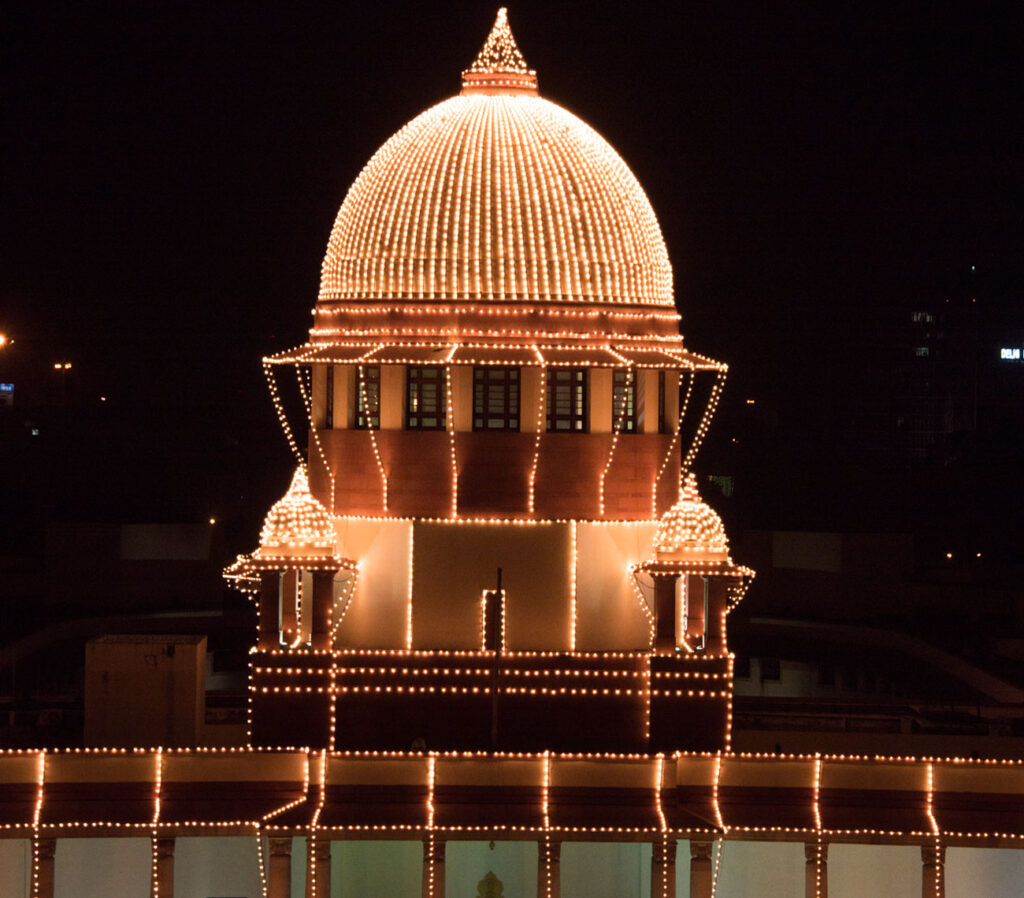New Delhi, Jan 17.
The government and the Supreme Court last exchanged views on revising the memorandum of procedure in July 2017, before the Law Minister raked up again recently on the issue of following through on the court’s NJAC ruling.
The top court struck down the National Judicial Appointments Commission Act, 2014, on April 13, 2015, and declared that the collegium system, which existed prior to the enforcement of the Constitution (93rd amendment) Act, 2014, was operative.
COURT ASKED GOVT TO WORK ON REVISING MOP AFTER NJAC RULING
In a subsequent order passed on Dec 16, 2015, the court directed the government to finalize the Memorandum of Procedure (MoP) by supplementing it in consultation with the collegium.
The court asked the government to consider eligibility criteria, transparency, establishment of a secretariat and a mechanism to deal with complaints.
The government after due deliberations, proposed changes in the existing MoP and the draft MoP were sent to the Chief Justice of India on March 22, 2016.
The CJI’s response was received on May 25, 2016, and July 1, 2016. The views of the government were conveyed to the CJI on Aug 3, 2016. The collegium inputs on the MoP were received from CJI vide letter dated March 13, 2017.
The Department of Justice conveyed the government stand vide the letter of Secretary (Justice) dated July 11, 2017, to the Secretary General, Supreme Court of India. The MoP was under finalization, Law Minister Kiren Rijiju had then told the Rajya Sabha.
COLLEGIUM TREATED MOP AS FINAL AFTER GOVT DIDN’T PURSUE NATIONAL SECURITY CLAUSE
This was the time words were exchanged over the government’s attempts to introduce a national security clause to veto candidates. The collegium rejected the suggestion. The CJI led collegium, however, treated the issue as closed after the government did not pursue the proposal.
The government’s attempts to revive the process after such a long hiatus raises many questions. Why did the government drop the process in 2017? After all, the attempt was to be confined to the procedure governing the appointments or the nuts and bolts.
Can the government now seek to have something that was rejected by the court emphatically in the NJAC? A government representative with a say over the judicial appointments process?
Can you seek to do something indirectly especially when it was rejected by the court when it was brought in via a substantive law in the first instance? Can procedure override a court judgement?
The secretariat was indeed to have a complaints committee but that was never created. There was much talk about a search and evaluation committee, but it was all talk. So where is the question of letting a government nominee seat in on any non-existent committee or committees?.
All these issues will now possibly have to be examined the CJI-led collegium, a process it has avoided so far.
GOVT CONTINUED TO APPOINT JUDGES UNDER OLD MOP, INPUTS FROM PUBLIC WERE INVITED
Just before the government dropped its attempts to revise the MOP and continued appointing judges under the old MOP, the Law Ministry had sought inputs from the public on ways and means to overhaul the collegium system by improving the procedure of appointing judges.
In response, the ministry received over 3,500 representations. Among those who submitted representations included BJP ideologue K.N. Govindacharya.
He suggested that the terms of appointment include a clause that if prospective candidates give wrong information, they can be removed without protracted impeachment proceedings.
In case, a candidate was related to any present or former judge, senior advocate or politician, then that person should not be part of the selection process, to eliminate any conflict of interest.
MOST SUGGESTIONS WERE ON QUALIFICATIONS, QUALITY OF PERSONS, RECRUITMENT
The top court later extended the time for sending in such suggestions, limited to ways and means to usher in transparency in the collegium’s working. Many suggested written tests followed by interviews for selection of judges.
These were compiled by then Additional Solicitor General Pinky Anand and senior advocate Arvind Datar, the amici in the case. They concluded that a majority were on qualifications and quality of those to be appointed as judges.
TOP COURT NEVER DEBATED SUGGESTIONS TO IMPROVE COLLEGIUM
The top court was to have a hearing on these suggestions but that never took place. The court even constituted a three-member committee, comprising then Attorney General Mukul Rohatgi, Bar Council of India chairman Manan Mishra and senior advocate Fali Nariman, to decide which lawyers would address the court on the issue.

